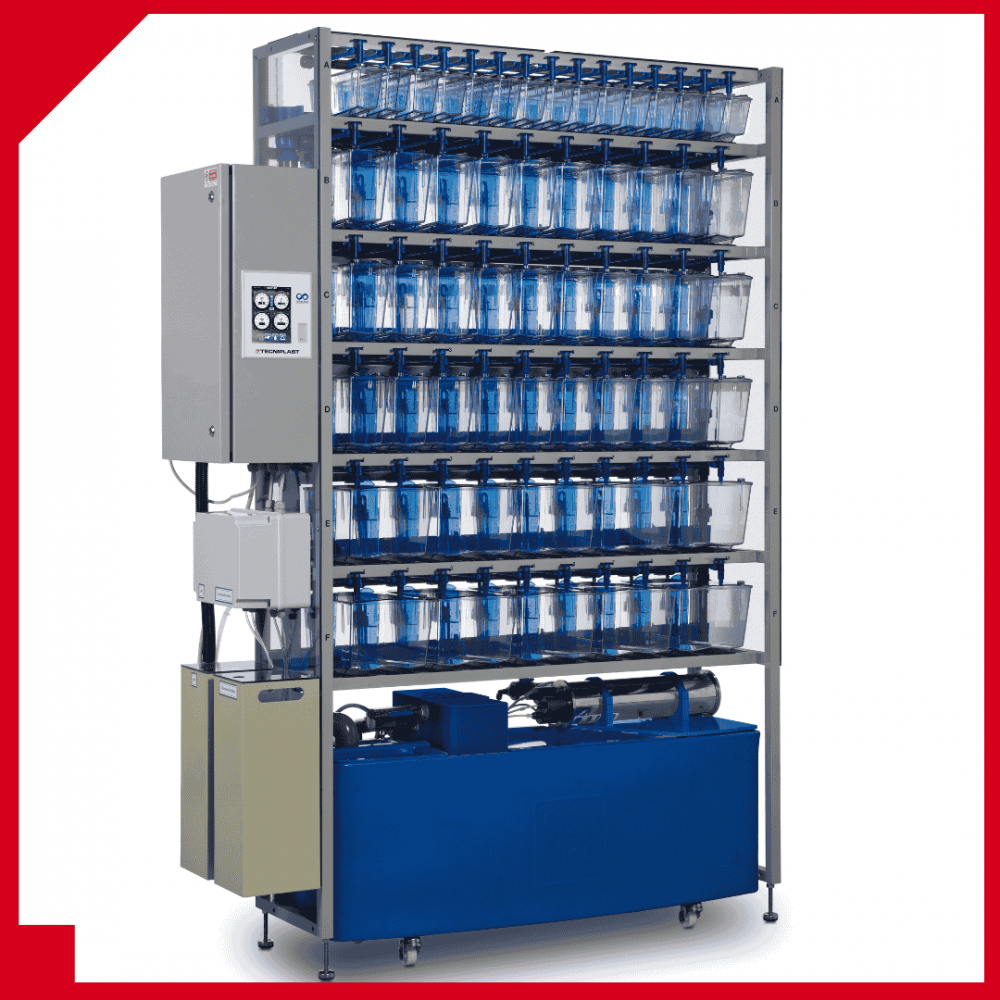
The current version of the Tecniplast website doesn't match your region. Please visit your local website to find information and offerings specific to your country.

The current version of the Tecniplast website doesn't match your region. Please visit your local website to find information and offerings specific to your country.

 The Zebrafish housing in recirculating systems usually requires a significant number of consumables. This also includes mechanical filters like pre-filters and cartridge/ bag. Pre-filtration is needed to retain the largest particles (typically in the range of 100µm like feces and uneaten food).
The Zebrafish housing in recirculating systems usually requires a significant number of consumables. This also includes mechanical filters like pre-filters and cartridge/ bag. Pre-filtration is needed to retain the largest particles (typically in the range of 100µm like feces and uneaten food).
Smaller debris that escaped the pre-filter are furtherly trapped using a secondary mechanical stage to prevent that particles bigger than 50µm can reach the UV lamp unfiltered and thus reduce the disinfection efficiency.
In order to maintain the same filtration efficiency but optimizing the use of disposable filters and labour, recirculating systems can be designed with self-cleaning mechanical solutions to combine mechanical filtration in one solution and drastically reduce the use of disposable filter with a positive effect on running costs and waste reduction. Among the available options, drum filters represent self-cleaning rotative mechanical filters that constantly filter water by gravity. As soon as the submersed side of the mesh clogs, a motor activates the rotation of the mesh to expose the dirty side to pressurized clean system water. Dirty water is collected and immediately delivered to the drain.

Furthermore the amount of water that is used for cleaning the mesh is calculated within the daily water exchange to avoid the waste of unneeded extra volumes and thus save water.
At Tecniplast we are committed to a sustainable housing of fish and strive to integrate this technology from the Active Blue Standalone system to fully centralized solutions.